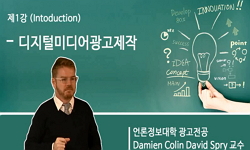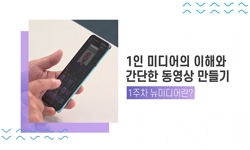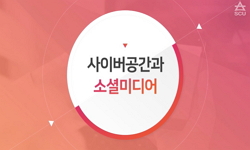이 연구는 한국의 정치기사에서 소셜미디어를 취재원으로 활용하는 관행의 문제점을 고찰하기 위해 소셜미디어를 인용한 정치기사를 대상으로 1) 기사에 인용된 소셜미디어의 역할, 2) 기자...
http://chineseinput.net/에서 pinyin(병음)방식으로 중국어를 변환할 수 있습니다.
변환된 중국어를 복사하여 사용하시면 됩니다.
- 中文 을 입력하시려면 zhongwen을 입력하시고 space를누르시면됩니다.
- 北京 을 입력하시려면 beijing을 입력하시고 space를 누르시면 됩니다.

정치기사의 소셜미디어 활용 관행 : 지면 기사와 온라인 기사의 비교 = The Practices of Social Media Utilization in Political News : A Comparison Between Print and Online Articles
한글로보기https://www.riss.kr/link?id=A109126512
- 저자
- 발행기관
- 학술지명
- 권호사항
-
발행연도
2024
-
작성언어
Korean
- 주제어
-
등재정보
KCI우수등재
-
자료형태
학술저널
- 발행기관 URL
-
수록면
5-42(38쪽)
- 제공처
-
0
상세조회 -
0
다운로드
부가정보
국문 초록 (Abstract)
이 연구는 한국의 정치기사에서 소셜미디어를 취재원으로 활용하는 관행의 문제점을 고찰하기 위해 소셜미디어를 인용한 정치기사를 대상으로 1) 기사에 인용된 소셜미디어의 역할, 2) 기자들의 소셜미디어 인용 관행을 살펴보았다. 구체적으로 소셜미디어가 정치기사의 취재원으로 활용될 때 어떤 역할을 하는지를 토대정보 활용 여부와 의존도 등으로 분석하고, 기자들이 누구의, 어떤 소셜미디어를 인용하는지, 인용 과정에서 사실 확인을 위해 당사자 인터뷰 등을 얼마나 수행하고 이를 기사에 반영하는지를 조사했다. 또한 각 항목에서 지면 기사와 온라인 기사의 차이가 있는지 비교 분석했다. 이를 위해 20대 대통령 선거 기간(2022년 2월 15일~2022년 3월 8일)에 6개 일간지(경향신문‧동아일보‧조선일보‧중앙일보‧한겨레‧한국일보)에서 보도된 정치기사 가운데 소셜미디어를 인용한 기사 1,146건을 내용분석했다. 그 결과 절반 이상(611건, 53.3%)은 소셜미디어를 토대정보로 활용했으며, 소셜미디어 의존도(전체 기사 중 소셜미디어 인용 비중)는 평균 34.3%로 나타났다. 정치기사에서 가장 많이 인용된 소셜미디어 종류는 페이스북(952개, 67.9%)이었으며, 인용된 주체는 거대 양당인 더불어민주당과 국민의힘의 후보와 정치인이 71.6%(1,005회)를 차지했다. 소셜미디어 인용 과정에서 사실 확인 및 추가 취재를 분석한 결과, 1,109건(96.8%)은 소셜미디어 작성자에게 확인한 사실이 드러나지 않았고, 887건(77.4%)은 인용된 소셜미디어 내용에 대한 이해당사자 인터뷰가 없었다. 1,077건(94.0%)은 제삼자 인터뷰가 없었으며, 347건(30.3%)은 소셜미디어 외 추가 취재가 없는 것으로 나타났다. 이러한 경향은 지면 기사보다 온라인에서 더 두드러졌다. 또한 소셜미디어 내용은 의견 및 주장 제기(381건, 33.2%)와 비판 또는 비방(311건, 27.1%)이 주를 이뤘다.
다국어 초록 (Multilingual Abstract)
Additionally, 611 articles (53.3%) used social media posts as a primary source of news. On average, 34.3% of the articles relied on social media, and online articles relied significantly more on social media than offline articles. Additionally, 1,109 instances (96.8%) used social media posts without confirming the individual who sent the message, 887 instances (77.4%) did not include the relevant individuals, and 1,077 instances (94.0%) did not include third-party interviews. Furthermore, 30.3% of the articles relied solely on social media posts without any additional verification efforts. Moreover, offline news outperformed online news in terms of interviewing related people and third parties, as well as making further attempts to verify social media posts. For political news articles, the characteristics of quotes derived from social media consisted mainly of opinions and arguments, as well as criticism or slander.
The purpose of this study is to examine how Korean journalists utilize social media in reporting political news and whether there are differences between online and offline (print newspapers) in their practices of employing social media in political n...
The purpose of this study is to examine how Korean journalists utilize social media in reporting political news and whether there are differences between online and offline (print newspapers) in their practices of employing social media in political news articles. By conducting a content analysis of 1,146 political articles that included social media published in six daily newspapers during the 20th presidential election (from February 15, 2022, to March 8, 2022), this study investigated (1) the role of social media in political news articles and (2) the practice of using social media, including the types of social media employed, the social media posts quoted, the veracity of the social media quotations, and the content of quotations derived from social media. This study also examined the differences between print and online articles in each of these variables. This study included 1,146 political articles, with 966 published online and 180 printed in newspapers. The six nationwide daily newspapers are: Kyunghyang Shinmun, Dong-A Ilbo, Chosun Ilbo, JoongAng Ilbo, Hankyoreh, and Hankookilbo. The study's findings revealed that political campaigns were the most frequently discussed topics in the political news articles included in this study, with an average use of three sources and a mention of one or more social media platforms. In addition, Facebook was the most quoted social media platform, with social media posts published by politicians and campaign officials affiliated with the main opposition People Power Party and the ruling Democratic Party’s presidential candidate getting the most quoted. By contrast, relevant individuals and third-party interviews were more likely to be excluded from the articles.
Additionally, 611 articles (53.3%) used social media posts as a primary source of news. On average, 34.3% of the articles relied on social media, and online articles relied significantly more on social media than offline articles. Additionally, 1,109 instances (96.8%) used social media posts without confirming the individual who sent the message, 887 instances (77.4%) did not include the relevant individuals, and 1,077 instances (94.0%) did not include third-party interviews. Furthermore, 30.3% of the articles relied solely on social media posts without any additional verification efforts. Moreover, offline news outperformed online news in terms of interviewing related people and third parties, as well as making further attempts to verify social media posts. For political news articles, the characteristics of quotes derived from social media consisted mainly of opinions and arguments, as well as criticism or slander.
동일학술지(권/호) 다른 논문
-
국내 주요 종합일간지의 이념 성향에 따른 15대부터 20대 대선까지의 뉴스 보도량 및 이슈 현저성의 편향에 대한 통시적 분석
- 한국언론학회
- 이신행
- 2024
- KCI우수등재
-
재난 보도 영상 화면의 피해자 묘사에 대한 뉴스 이용자의 뉴스 가치 평가
- 한국언론학회
- 오령
- 2024
- KCI우수등재
-
청소년의 또래집단 규범이 비윤리적 행동 중단의도, 인공지능 챗봇에 대한 친밀감과 상호작용 만족도에 미치는 영향 : 메시지 프레임의 조절효과
- 한국언론학회
- 박남기
- 2024
- KCI우수등재
-
후기청소년(19-24세)의 미디어 리터러시 역량 개발 방안에 대한 근거이론적 분석 : 후기청소년들 및 전문가들과의 심층 인터뷰를 중심으로
- 한국언론학회
- 강진숙
- 2024
- KCI우수등재




 DBpia
DBpia






